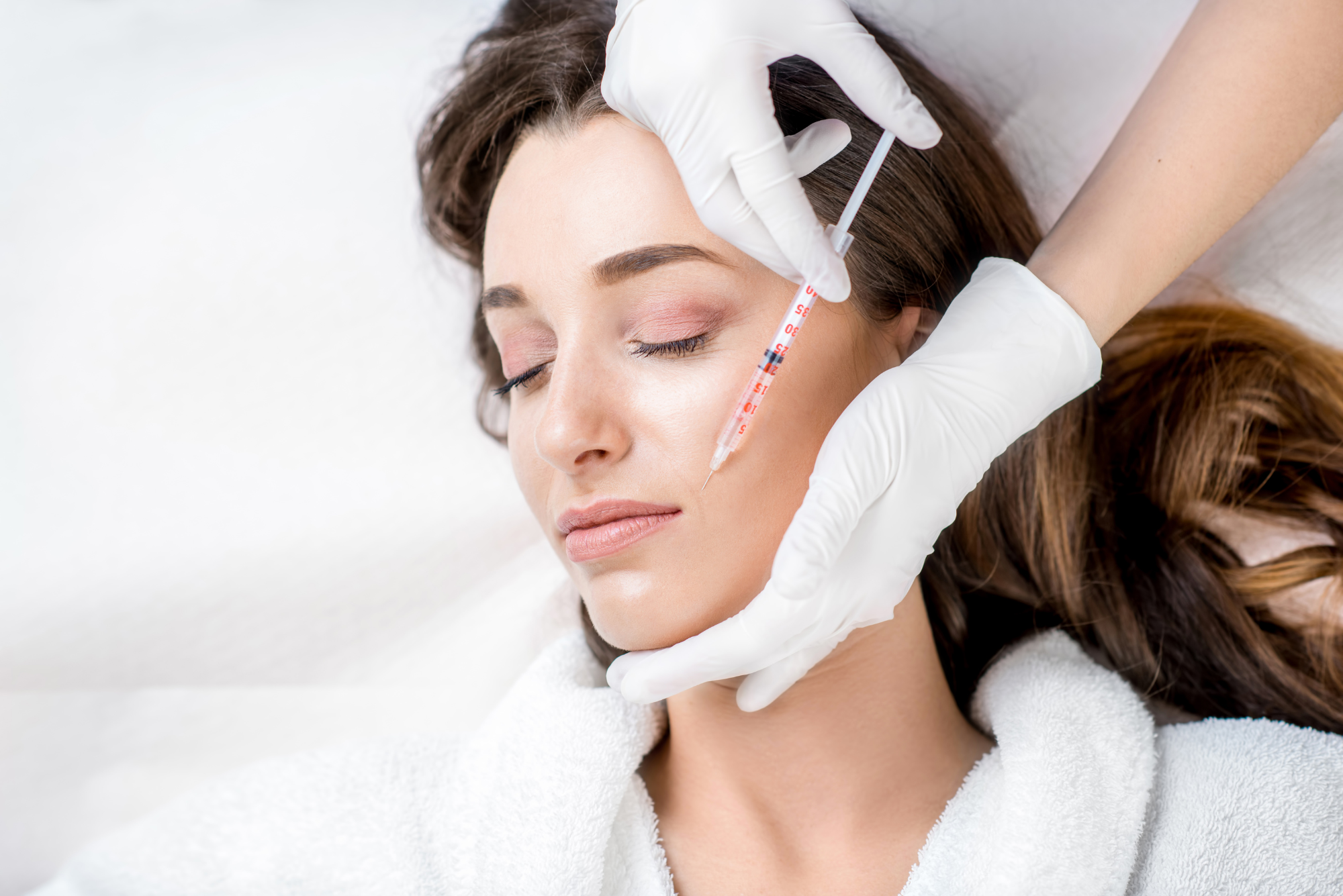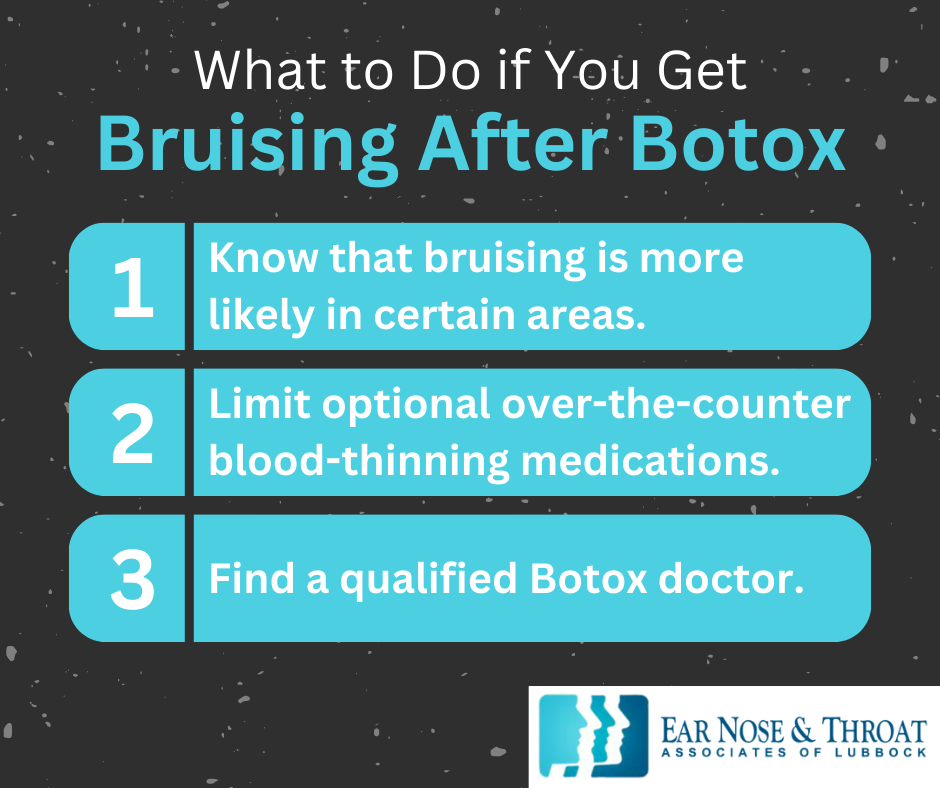Bruising After Botox: A Doctor Describes What to Expect

When you consider getting Botox, what holds you back?
Are you worried your face might look frozen or plasticky? Or are you afraid you’ll leave the office looking like a different person?
Fortunately, these less-than-desirable results only come from bad Botox.
When Botox is done well, no one will even be able to tell you’ve had it. You’ll still look like you, just more youthful. Common responses from others are, “You look great! What have you been doing? Tell me your secret!”
Similarly, you might be worried about Botox causing bruising. Again, it’s not as drastic as you may think. Here’s what you need to know about bruising after Botox and what to expect.
How Common Is Bruising After Botox?
Only about 5% of our patients experience bruising after Botox. It’s rare, and when it does happen, it’s very mild and superficial. Most people can’t see the bruising after applying makeup.
Why Does Bruising Happen and How Long Does It Last?
Bruising occurs when a the Botox needle hits one of the many capillaries just under the skin during treatment. When nicked, these tiny blood vessels leak a small amount of blood below the skin’s surface, causing it to look purple or blue — in other words, causing a bruise.
Everyone heals at a different pace, but mild bruising usually dissipates within a few days.

What to Do if You Get Bruising After Botox
Several factors affect your likelihood of bruising after Botox. The following tips can help you manage your expectations and prevent bruising when possible.
Tip #1: Know that bruising is more likely in certain areas.
Some areas of your face are more likely to bruise than others, regardless of precautions. For example, the skin of your forehead is thinner than the skin of the rest of your face, so the blood vessels sit just below the surface and are easier to nick with a needle.
The forehead also has greater vascular variability than other areas. Because of this, it’s harder to predict where all the little vessels in this area will be and avoid them.
Tip #2: Limit optional over-the-counter blood-thinning medications.
Before getting Botox, avoid taking certain over-the-counter medications like Aspirin and ibuprofen and limit your alcohol consumption. Since these substances slow blood clotting, they can increase your risk of bleeding and bruising.
However, if you’re taking a prescription blood thinner for medical reasons, you should continue taking it unless your prescribing doctor says otherwise. You can still get Botox; you’re just more likely to experience bruising.
Tip #3: Find a qualified Botox doctor.
Seeing a qualified Botox doctor who has an intimate knowledge of facial anatomy immediately reduces the likelihood of adverse side effects, including bruising.
An experienced Botox doctor will know the location of the larger arteries and veins and will avoid hitting them with a needle. However, capillaries are everywhere under the skin, so even patients seeing an experienced doctor can experience bruising after Botox. The goal is to make sure any bruising is as minimal as possible.
When searching for a Botox doctor, make sure to get details about their medical experience, credentials, and the percentage of patients that return for their follow-up treatments. Also, ask about the type of results you can expect.
Talk to Your Doctor About Your Risk of Bruising After Botox
Unfortunately, some people are more prone to bruising than others. Your skin tone can also affect the visibility of any bruising that does occur.
Regardless, an excellent Botox doctor will review all the potential risks and side effects with you before your first treatment. They can also check your individual risk factors for bruising, make suggestions, and help you achieve the best results possible.
Dr. Cuthbertson is a physician at Ear Nose & Throat Associates of Lubbock. He joined the team at ENT Lubbock from Houston, where he was chief resident of the prestigious Bobby R. Alford Department of Otolaryngology at Baylor College of Medicine. He is board certified in Otolaryngology and Head & Neck Surgery and has quickly built a reputation, not only as an extremely skilled surgeon, but as an approachable and compassionate clinician adept in the newest standards and technologies. Learn more about Dr. Cuthbertson.
Categories:








